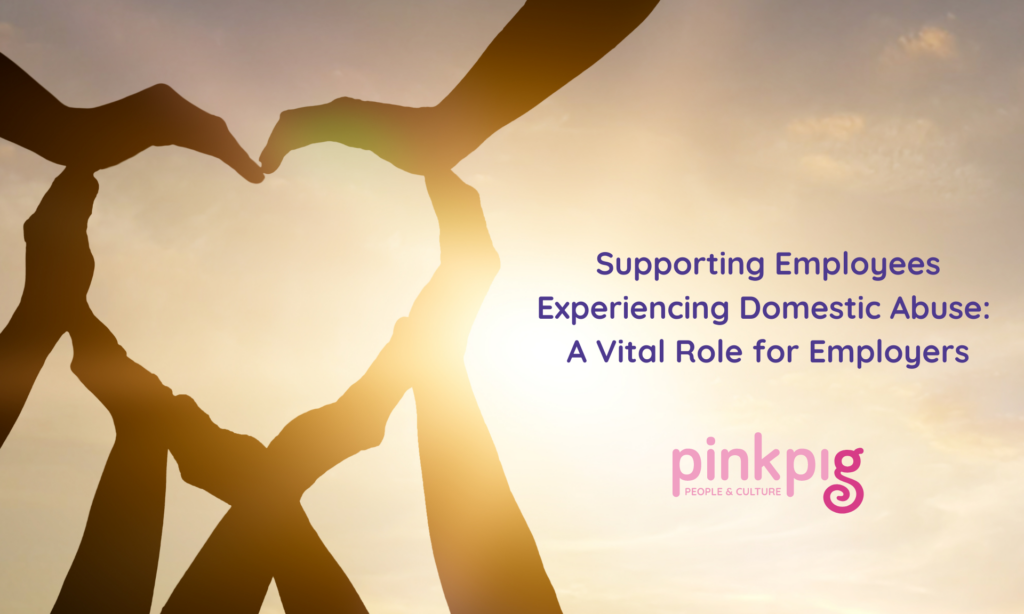Domestic abuse is sadly still prevalent in our society, with one in four women and one in seven men experiencing it in their lifetime.
Many survivors of domestic abuse are impacted at work – whether through abusive calls and emails, their abuser stalking them at the office, or simply through decreased productivity and ability to work.
As an employer, you have a duty to safeguard the wellbeing of your staff. While only 5% of companies currently have a domestic abuse policy, this needs to change. Domestic abuse is very much a workplace issue.
The impacts on your business and other employees can include:
- Decreased morale, productivity and ability to work from the survivor
- Threats and harm to other colleagues by the abuser
- Conflict and tension created in the office
- Reputational damage and financial costs from time off and lost wages
You have the power to make a real difference through implementing a domestic abuse policy, training managers on spotting signs of abuse, and creating a supportive environment for survivors. Your actions as an employer can help change and even save someone’s life.
Even seemingly simple things can make a huge difference to someone experiencing abuse, like
- Have a policy – share with your employees how you can help and how to get the help.
- Offer time off for them to do things – the things they need to do but can’t when being watched at home.
- As an example, Australia has a standard policy countrywide where they can take up to 2 weeks off fully paid and shows as normal on a payslip so it can’t alert the abuser.
- Offer to change the account wages are paid into so they have some financial independence.
- Give references for new home/rental property .
- If yours is a physical place of work how can you put measures in place to stop the abuser getting access to them at work?
- If you have a remote team – can you help them to work somewhere safer?
- Educate your team – I often speak to companies about the realities of domestic abuse, share my experience and ways to help
- But most importantly, talk to them and ask them what support they need.
Support for employers is available. Charities like EIDA provide best practice, resources and practical guidance to help you carry out this vital duty of care. If you sign up as a member you can also gain access to a sample policy so you don’t have to start from scratch. Or, if you’d like some help in implementing a policy and support for your team check out my employer support services.
By supporting survivors, you can create a safer, more productive workplace, as well as potentially save a life.

